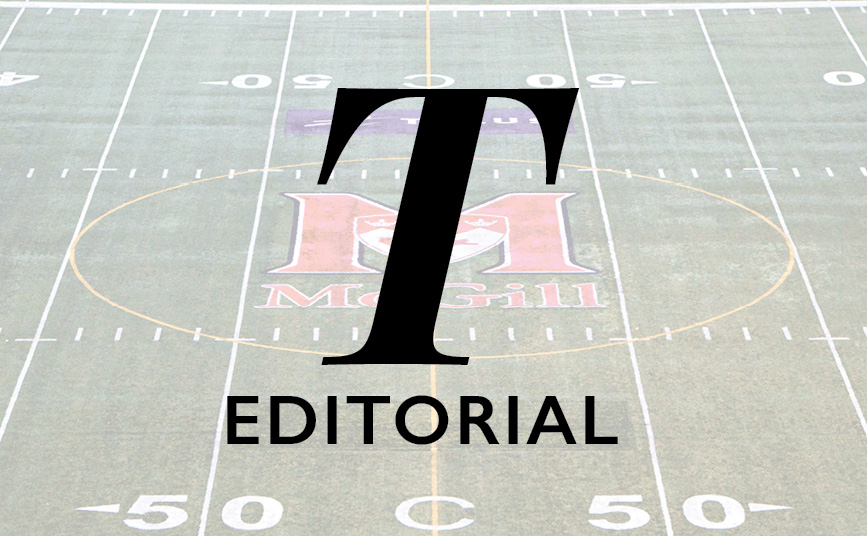On April 12, McGill students received a monumental email: Principal and Vice-Chancellor Suzanne Fortier had reached a decision on whether or not to change the controversial Men’s Varsity Team name. Fortier wrote that, with respect to Indigenous students who felt alienated and disrespected by the name, the Mens’ teams names would be replaced. While this decision represented a major victory for the Indigenous students and allies who had protested and spoken out against the injustice, the email also mentioned that McGill would not announce a new name for the team until the beginning of the Fall 2020 semester. The McGill mascot, the Martlet, is already the name of the Womens’ Varsity teams, which means that a gendered divide remains between the two groups. It makes sense for McGill to adopt the Martlet name unanimously for all school teams, and the administration must both increase transparency and make greater efforts to involve the student body in the process.
Fortier’s email outlined that a steering committee would be formed to lead a consultative process for choosing a new name, and mentions that details about this process would be communicated in the months ahead. That email was in April. The student body has been left hanging over the summer months and it’s not clear that McGill will now change its approach and proceed with apposite transparency.
At McGill and in varsity sports more generally, there is a historical sexist and transphobic divide in team naming and participation. The administration’s failure to publicly consider adopting the Martlet name seems to represent this larger issue. In the same manner that the original men’s team name ostracized and disrespected Indigenous students, this binary divide alienates transgender students who may feel unsafe and uncomfortable participating in gendered sports.
Right now, McGill stands at a precipice from which they can challenge the inequitable separation through false gender-binaries in college sports, paving the way for other institutions to do the same and uniting the McGill community under a single name for which the student body already feels an association. Failing to do so would be a disservice to both current and future students and athletes.
Student-organized protests spearheaded by the Indigenous community at McGill brought about the name-change in the first place. Therefore, the administration must make a greater effort to engage those who a decision this monumental should be up to. Given this history, it makes ethical and logistical sense to involve Indigneous students, and the rest of the student body, in choosing the new name. The administration can poll the student body, allowing students to vote on which name they want for the men’s team to fully understand interest. The decision making process shouldn’t be bureaucratic and inaccessible.
While a year is a long time to make a decision, it may make sense to present a new name at the beginning of a fresh sports season. Additionally, this is a delicate decision that needs the thought and care it deserves. However, during that time, students deserve insight into the decision process. Whether this means publishing the minutes of working group meetings or sending regular email updates, transparency must be increased. In the meantime, in honour of the students who spearhead the #ChangeTheName campaign, students should continue to support Indigenous initiatives on campus: For example, from Sept. 16 to 27, the Indigenous Education Advisor alongside the First People’s House are hosting Indigenous Awareness Weeks, with numerous free events, talks, and activities on campus. McGill has an opportunity to set a towering precedent for inclusivity in university sports and if it fails to do so, it will simply be exchanging a name that represented racial injustice to a name that continues to represent gender inequity.








